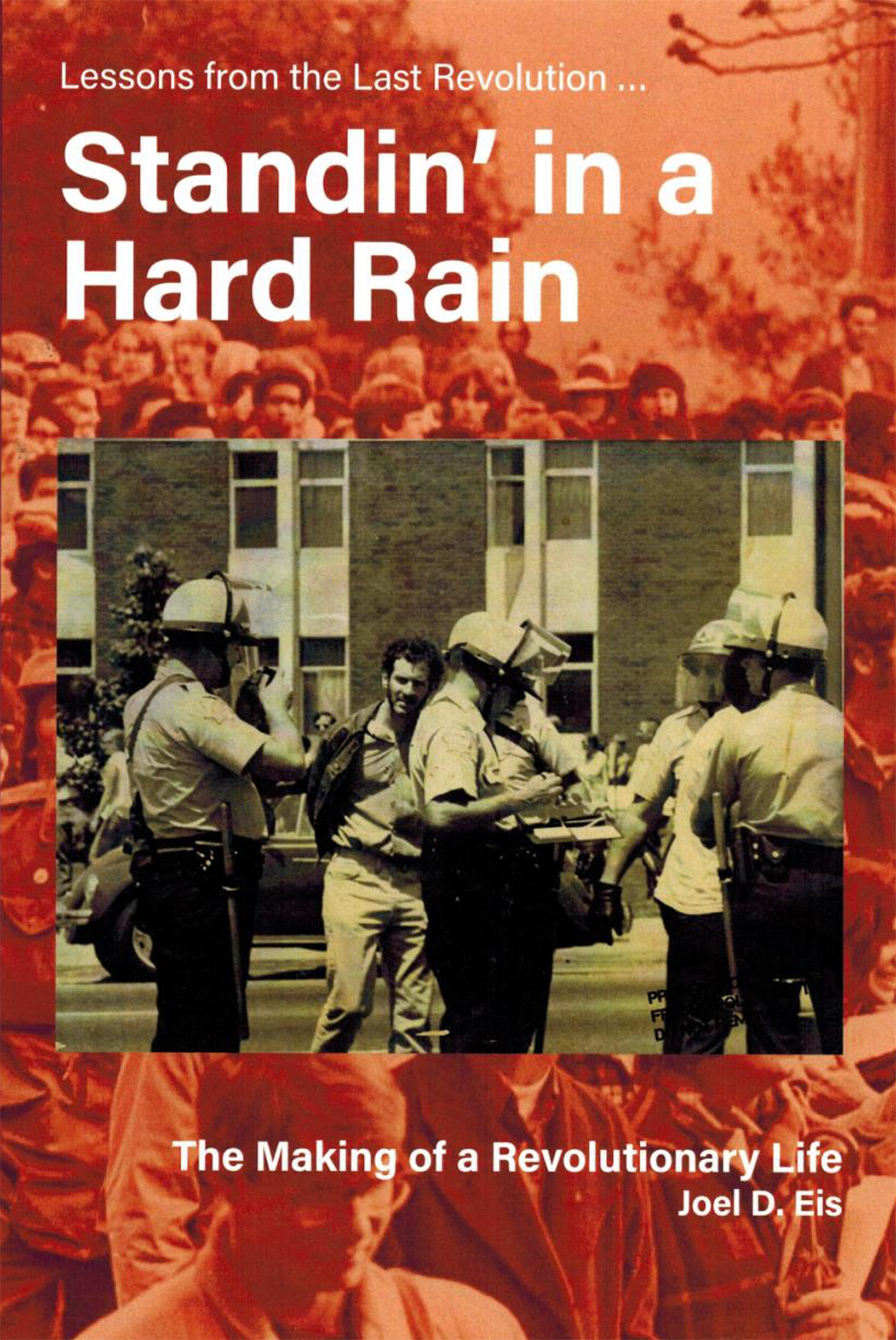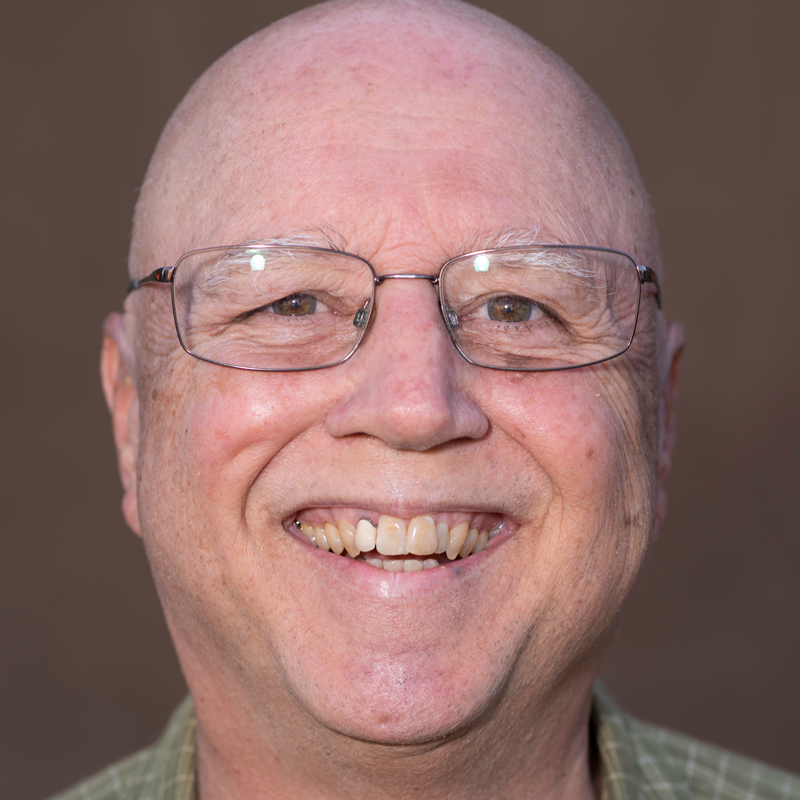

“We found ourselves fighting a war at home and became the people our parents warned us against.”
The memoir of former Fresno resident and political radical Joel Eis, Standin’ in a Hard Rain: The Making of a Revolutionary Life, will be published by World Beyond War (https://worldbeyondwar.org), a worldwide peace activist group based in Charlottesville, Va.,
The title, Standin’ in a Hard Rain, is taken from Bob Dylan’s song “A Hard Rain’s Gonna Fall.” It refers to the looming struggle as America confronted a moral breakdown, the symptoms of which were its failure in civil rights and a genocidal war in Vietnam.
Subtitled “Lessons from the Last Revolution,” the book relates the details of daily life inside the radical politics of the 1960s in the Central Valley and beyond.
“I was followed and informed on,” says Eis, with a wry smile. “My phone was tapped. I was shot at. I did some time in jail. My FBI file is as thick as a small city phone book. Even though I’ve seen it twice, the government claims it doesn’t exist.”
Eis’s particular weapon in the struggle was political theater with such groups as El Teatro Campesino, the San Francisco Mime Troupe and his own theater company.
Eis quipped that “the Feds probably have more pictures of me on stage than I had in my own press kit.”
Eis’s story sheds light on the changes that political involvement can bring to someone’s life. Many of his heaviest experiences were in Fresno.
Even before the 1960s, he found himself in the right place at the right time to be part of history. At age 13, he caused a “prayer in the schools” crisis in 1959 by simply refusing to read the New Testament in his seventh-grade homeroom.
The book already has important pre-publication notices. David Harris, organizer of the National Draft Resistance and a Fresno native himself, and Peter Coyote, activist, movie actor and narrator of Ken Burns’ documentaries—including the series on the Vietnam War—are both enthusiastic about the book, along with enough journalists and former activists to be a small demonstration on their own.
Will Durst, comedian and San Francisco Chronicle columnist, said, “Somehow Joel was in the right place at the right time. His book reads like a left-wing Forrest Gump, only it’s real!”
Through sheer chance encounters, Eis found himself with the Freedom Riders in the Deep South and on the front lines of the 1968 strike at San Francisco State (the longest, most violent student strike in American history).
He worked with the draft resistance center in Fresno and the grape strike with El Teatro Campesino in the Tower District. He organized and engaged in demonstrations at Fresno State and found himself on the wrong end of a National Guard bayonet at People’s Park in Berkeley.
“The Governor had called in National Guard troops from outlying towns, including Fresno, to the People’s Park demos,” Eis said with a somber look. “The guy with his bayonet right at my throat was a kid I’d been friends with at John Muir Junior High, right here in Fresno.”
Eis related the book to the larger picture. “My story is really about all of us, about how we dealt with what the power brokers wanted us to be a part of and our revolution against it.”
Eis then related his tale to today. “This generation is facing a cultural conflict more profound, more pervasive and more determined than anything we encountered. The purpose of the memoir is to give some idea of how an ordinary person—from Fresno nonetheless—dealt with it all.”
His recounting is more than a “march and tell” saga. Eis recounts an important part of the full story that has never been discussed, “After the war, we had to return to ‘ordinary life.’ We went through personal disorientation, something like what our soldiers experienced returning to ordinary life.
“Some did not transition well. Extreme drug use and joining arcane cults became commonplace. However, many took the revolution ‘underground’ and sought to continue the struggle for a country with a heart, becoming teachers, nurses, doctors, lawyers, activists for environmental causes, journalists and artists.”
Standin’ in a Hard Rain should be out before Christmas in paperback, e-book and audio through Amazon and on the shelves at local bookstores. The book itself will be part of a current political struggle. It’s going to be an organizing tool.
Eis will share the podium at book launch readings with local organizing groups to raise awareness and support. There will be launch events and talks in Fresno and perhaps in other Central Valley towns where bookstores invite him to speak.
In addition, Eis has launched a GoFundMe campaign to support the cost of the project. If you’re interested in supporting the project, visit the GoFundMe site and search for “A Project to Publish an Important Memoir.” Thank you gifts are offered in exchange for different levels of support.
Eis expressed the importance of young organizers tapping the generation for advice. “With the current onslaught on truth by the right, we’re all going to be ‘standing in a hard rain’ again in a struggle for the very soul of this country. We are still all in this together.
“You can bet the opposition is listening to every old warhorse they’ve got about how to win. Young folks cannot afford to ignore the experience of those who’ve been in the battle before.”
Asked if the life of an activist was worth the price, Eis responded that “we all have to look at ourselves in the mirror every day and ask, ‘what are we doing with our energy?’ I had to be true to myself.
“You can bet that if they could, all those folks in the veterans’ graveyards would tell you that history is personal. Your time has come.”
For the current generation seeking to know what the pitfalls and victories a life of activism entails, Standin’ in a Hard Rain serves as a virtual training manual, with honesty and humor.
We still have a lot to do.

